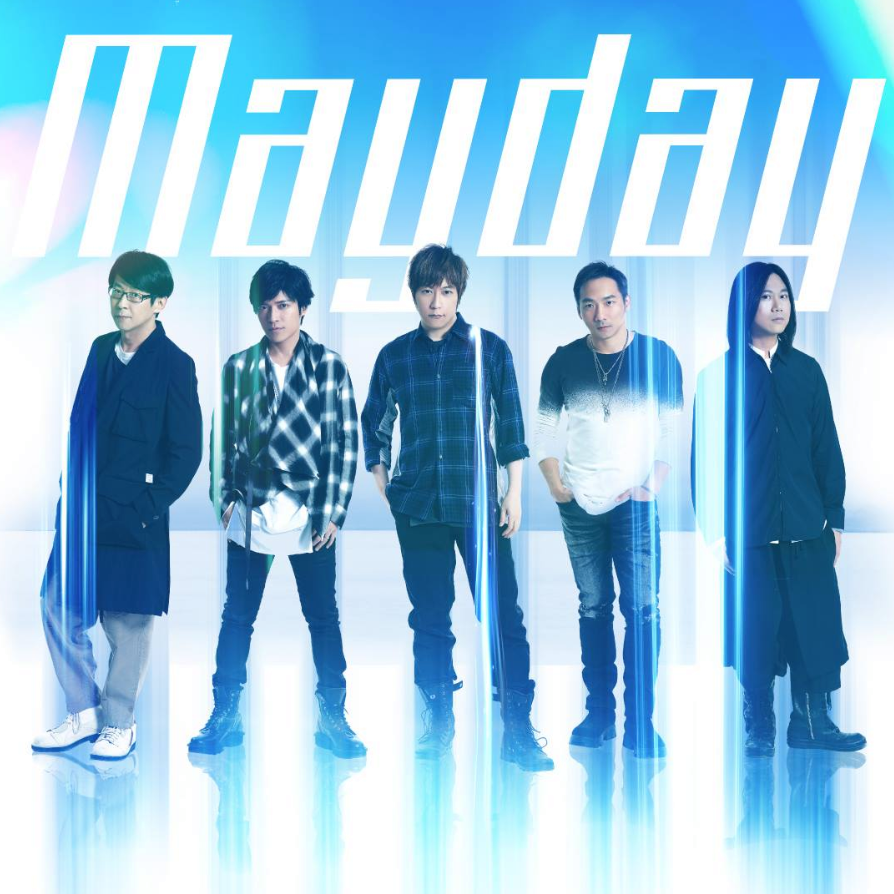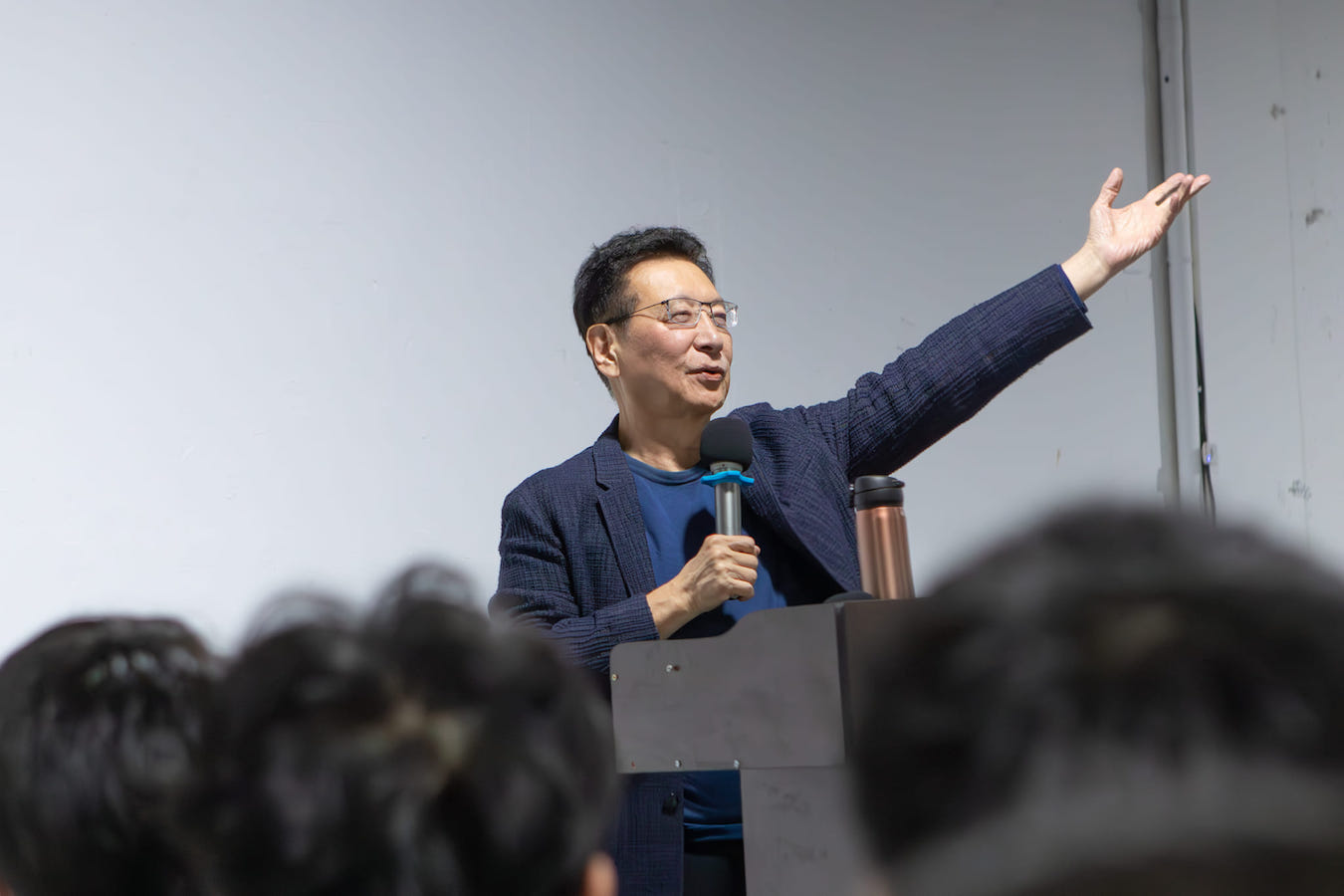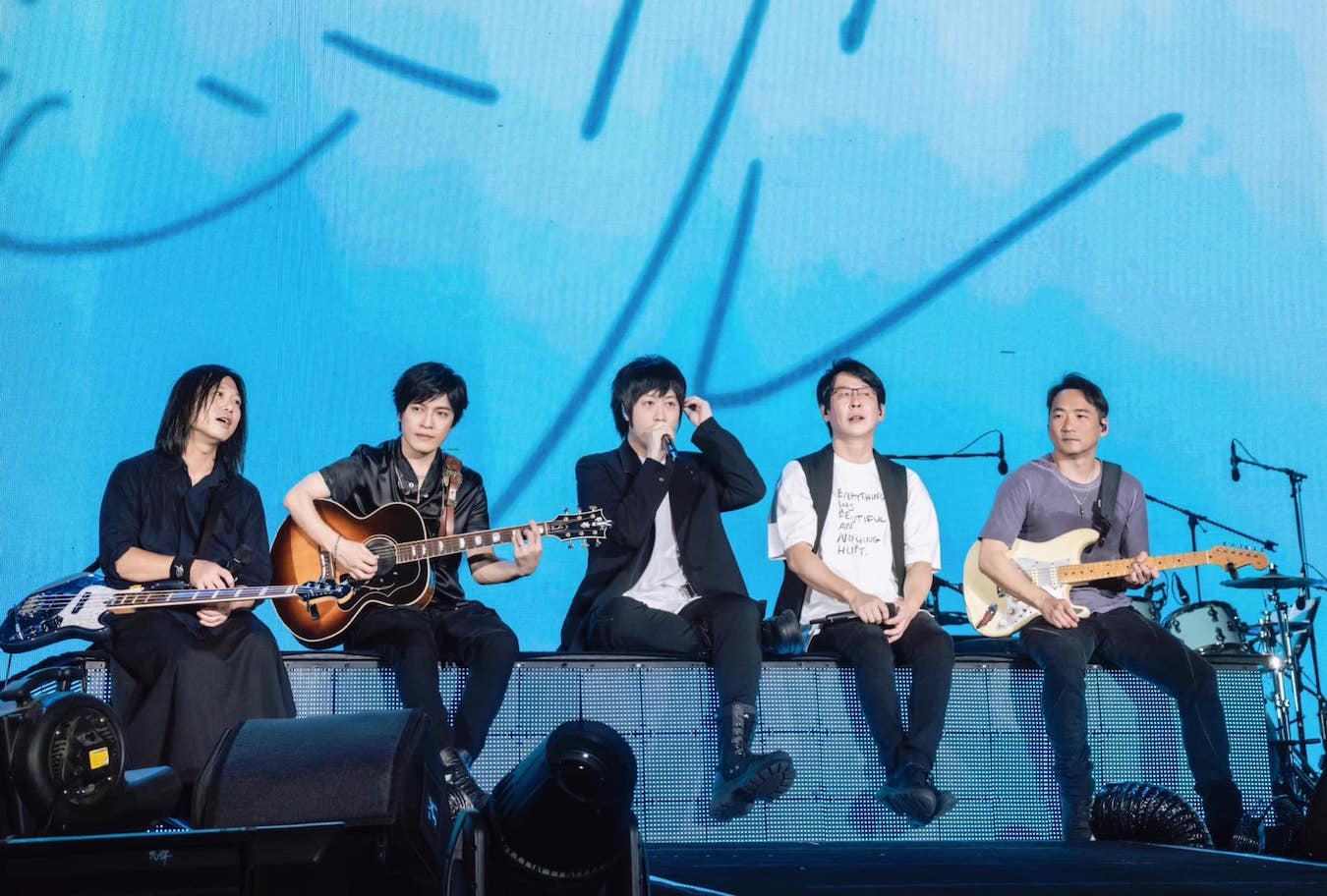by Brian Hioe
語言:
English
Photo credit: Mayday/Facebook
A REUTERS REPORT stating that Taiwanese band Mayday was pressured by Chinese authorities, citing an anonymous source, has become an object of political contestation in Taiwan.
In particular, the report states that allegations of lip-synching against Mayday that led Chinese authorities to investigate the band were because the band refused Chinese pressure. The band was requested to provide an unspecified service that authorities hoped would sway the views of young people in Taiwan.
China’s Taiwan Affairs Office has since denied the story. Mayday itself has largely sought to avoid being pinned down with political views that would lead to it being blocked from the Chinese market. Nevertheless, during the 2014 Sunflower Movement, bassist Masa expressed support for the youth-led occupation, before pressure from Chinese fans led the group to declare that it was not against the CSSTA.

Photo credit: Mayday/Facebook
This is not the first time in recent memory that Taiwanese musicians operating in the Chinese market have faced political pressure. In August, restrictions were reported on performances in China by A-mei and Jolin Tsai because of their popularity with members of the LGBTQ community. Members of indie pop group The Shine&Shine&ShineShine also saw a performance canceled over statements of the group interpreted as indicative of viewing Taiwan and China as separate countries. Other Taiwanese entertainers who have a presence in the Chinese market, such as actors, have faced similar–sometimes coming under scrutiny by Chinese fans or authorities for statements or actions that would not ordinarily be interpreted as supporting independence in Taiwan, but which were misread in the Chinese context.
It may not be surprising that the Reuters report was leveraged on by the DPP in campaigning, with the DPP emphasizing the dangers to Taiwan’s freedom of expression and other political freedoms from China. At the same time, the pan-Blue camp has taken a more conflicted stance.
Although pan-Blue candidates such as Ko Wen-je and Hou You-yi called for Taiwan’s freedom of expression to be respected, the KMT’s response was largely guided by Hou’s vice presidential candidate, Jaw Shaw-kong. Jaw alleged that the Reuters report was due to sources from the Tsai administration and called on the Tsai administration to offer proof. Jaw also called on the Chinese government to deny the story if it were not true, which it did.
At a time of strengthening ties between Taiwan and the international world, in which there is increased international reporting on Taiwan, it has sometimes been the case that the pan-Blue camp has lashed out at international media coverage it finds disfavorable. Because one of the reasons Taiwanese voters are cautious of the pan-Blue camp is because they view it as too pro-China, Hou and Ko likely would have been able to come off as less pro-China if they had joined in on the criticisms of China. Yet as Jaw is a deep Blue hardliner, his priorities were probably elsewhere.

Jaw Shaw-kong. Photo credit: Jaw Shaw-kong/Facebook
But, to this extent, suspects that the priority that Jaw had on denying the Reuters story was to prevent a repeat of the 2016 Chou Tzu-yu incident. Chou Tzu-yu, the Taiwanese member of South Korean girl group TWICE, was made to apologize by the band’s management after waving an ROC flag in a video. This was interpreted by Chinese viewers as a sign of supporting Taiwanese independence, though waving the ROC flag would not be read as such in Taiwan.
It is thought that outrage about Chou being made to apologize contributed to voters mobilizing for Tsai Ing-wen. Jaw may have hoped to prevent a similar incident regarding Mayday, though certainly Mayday probably does not command the same level of popularity among young people at present by comparison.



